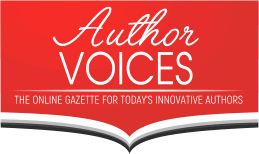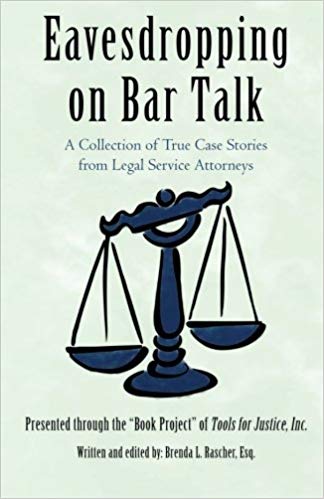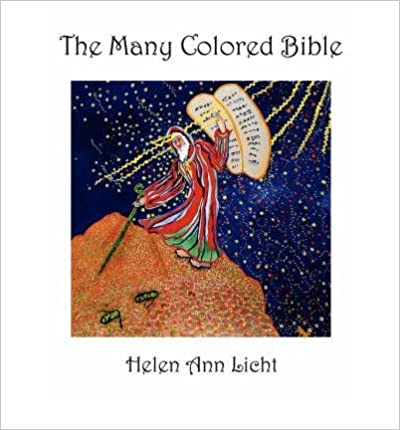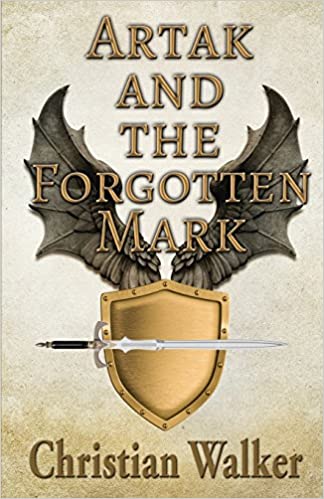Interview with Brenda Rascher
Author of Eavesdropping On Bar Talk: A Collection of True Case Stories from Legal Service Attorneys
Where are you from originally and where do you reside now?
I am originally from Middlesex, New Jersey and currently reside just out side Trenton, New Jersey.
If you currently reside somewhere besides where you were born, what’s the story that lead from there to here?
My journey to the Trenton area took a long crooked route from Middlesex, NJ to Cincinnati, OH (bachelor degree) to St. Louis, MO (Master of Social Work) to Philadelphia, PA (eventually getting my Juris Doctorate) to a short hop in Pennsauken, NJ back to Philadelpia, PA and back to Middlesex, NJ, but then to Port Norris, NJ (for 24 years where I was a staff attorney for a non-profit legal services organization) and then to the Trenton area where I have been for the past two years where I am the Executive Director for Catholic Social Services for the Diocese of Trenton.
What made you decide to write and publish your first book?
While working for a non-profit legal services organization representing low income residents, the then sitting New Jersey governor cut the funding we received by 33% the first year and then another 33% the second year. I felt that we needed to look at other ways to bring in funding to support the important work of legal services; funding that did not depend on who was sitting in the seats of power – state or federal. I also wanted to help people understand the kind of work legal service attorneys do and the clients we serve. So, working with a few friends, we created the non-profit, Tools For Justice, Inc., for which I wrote the book to tell some of the stories of legal service attorneys I’d come in contact with over the years. I donated the copyright to the book to Tools For Justice, Inc. in the hopes that the royalties would be donated to non-profit legal service organizations to support their work.
How would you describe your books to first time readers?
It’s a collection of true stories of how attorneys handled various legal issues brought to them by clients who were struggling financially, or disabled or senior citizens. It told from the perspective of the attorney and how the attorney figured out how to help each client.
Who do you feel is most likely to connect with the topics you write about?
I wrote the book in the hopes of connecting with a broad range of readers interested learning about what attorneys do, and about the legal issues faced by persons, often single moms, who lack the resources to fight these legal issue on their own.
What unexpected or surprising thing did you learn during the process of writing and publishing?
Since my book is a collection of true case stories that I brought together through an underlying story, I actually found the writing came much easier then I expected. It might have been due in part to the fact that I had been writing a weekly legal column for local newspapers for about 10 years by the time I wrote the book. Everything after the book was finished has been much harder then I expected.
If you could, what advice would you give to your past self before embarking on this journey?
I’d recommend rethinking how to get the book published and marketed. Since the book was based on true stories, I needed editorial control so that the key points needed to tell the story wouldn’t be messed up. So, we went the self-publishing route, but I think much more research on options for publishing and marketing would have been better.
How many people would you ideally like to reach with your books?
A whole lot!!! Everyone! The more people willing to buy the book means the more royalties Tools For Justice, Inc., will get that can be distributed to support the work of legal service organizations. The more people willing to read the book means more will be aware of the work of attorneys in non-profit legal service organizations, and hopefully, even support their local legal service organization directly.
What has been the biggest challenge and frustration during the process to date?
The biggest challenge and frustration has been marketing. It has also been difficult to go the self-publishing route.
What’s your biggest strengths when it comes to book a) writing, b) publishing and c) marketing?
I believe my strengths are more with the writing of the book. I recall it flowing fairly easily at the time.
What’s your biggest weakness when it comes to book a) writing, b) publishing and c) marketing?
My biggest weakness is really two weaknesses – both the publishing and the marketing.
When do you think you will write your next book?
I’ve actually been working on a social work book for years, but just haven’t made the time to finish getting it out of my head and onto paper – or, rather, into the computer. I have ideas for a couple others, but haven’t found my focus as yet. I also have enough material for a second edition for Eavesdropping On Bar Talk, but won’t likely wrote that until we do better with this first book.
Are you self published or did you use a hybrid publisher, or a traditional publisher?
We decided to self publish, but I’m don’t think we will do that again if we go with a second book.
FEATURED AUTHORS
Worrying if I was telling too many secrets Leaving out so much.
Keep Reading »Writing is an arduous task even when one has all ideas clear in the read more
Keep Reading »Write the book, start marketing (letting people know of it) before you finish.
Keep Reading »










